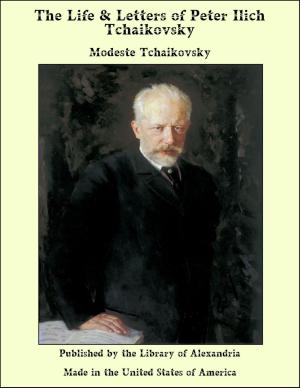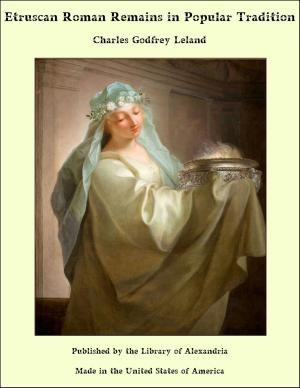The Banished: A Swabian Historical Tale. In Three Volumes
Nonfiction, Religion & Spirituality, New Age, History, Fiction & Literature| Author: | Wilhelm Hauff | ISBN: | 9781465558824 |
| Publisher: | Library of Alexandria | Publication: | July 29, 2009 |
| Imprint: | Library of Alexandria | Language: | English |
| Author: | Wilhelm Hauff |
| ISBN: | 9781465558824 |
| Publisher: | Library of Alexandria |
| Publication: | July 29, 2009 |
| Imprint: | Library of Alexandria |
| Language: | English |
The tale of The Banished has been taken from a German work;1 but though considerable freedom has been used in the translation from the original text; the subject matter has been closely followed. It appears from the preface of M. Hauff, the author of this work, that his aim was to give an account of an event which took place in his own country, together with a faithful description of the national manners and customs of the period of which he treats; and being written at the time when the author of Waverley was as yet only known as the "Great Unknown," it would seem that M. Hauff, impelled by the fascination of his writings, has adopted him as his model, as may be seen from the following extract from his introductory chapter: "Thanks to the happy pencil of the renowned novelist, who has painted in such lively colours the green banks of the Tweed, the Highlands of Scotland, old England's merry day, and the romantic poverty of Wales, all classes among us read his admirable works with avidity, rendered into our language in faithful translations, and realizing to our minds historical events which happened some six or seven hundred years back. Such is the effect produced by these writings, that we shall be as well, if not better, acquainted with the histories of those countries than if we had investigated them ourselves with the most learned research. The Great Unknown--having opened the stores of his chronicles, and brought in review before our wondering eyes image after image, in almost endless succession--has, by the power of his magic, taught us that we are likely to become better versed in the details of Scotland's history than our own; and by its means also has made us feel less intimate with the religious and secular transactions our own country in past ages, than with those of the Presbyterians and Episcopalians of Albion. "But we naturally ask ourselves in what consists the enchantment by which the great magician has so wonderfully drawn our attention towards the mountainous district of his own land? Are the Scottish hills clothed with a hue of brighter green than the Harz or Taunus mountains, or the heights of the Black Forest? Do the blue waters of the Tweed reflect a more brilliant colour than the Neckar or Danube; or do its banks surpass those of the Rhine in beautiful landscape? May be, that Scotland is gifted with a race of men possessing qualities of greater interest than we can boast of in Germany; and that the blood which flowed in the veins of their ancestors was of a deeper hue than that of Swabians and Saxons of olden times; or again, that their women are more engaging, and their maidens more beautiful, than the daughters of Germany? "We have reason to doubt all these superior advantages, and believe that the magic of the Great Unknown consists principally in placing before the reader historical facts which his fertile genius has faithfully dressed up in the manners and costumes of the day in which they took place. With the same view our object has been to bring to light an event of our own country; in which we have been guided by historical truth alone." The translator having visited the spot where one of the principal scenes of the narrative took place, his attention was drawn to the original work, as giving a faithful description of its locality, and containing an interesting account of an important occurrence in Swabian history
The tale of The Banished has been taken from a German work;1 but though considerable freedom has been used in the translation from the original text; the subject matter has been closely followed. It appears from the preface of M. Hauff, the author of this work, that his aim was to give an account of an event which took place in his own country, together with a faithful description of the national manners and customs of the period of which he treats; and being written at the time when the author of Waverley was as yet only known as the "Great Unknown," it would seem that M. Hauff, impelled by the fascination of his writings, has adopted him as his model, as may be seen from the following extract from his introductory chapter: "Thanks to the happy pencil of the renowned novelist, who has painted in such lively colours the green banks of the Tweed, the Highlands of Scotland, old England's merry day, and the romantic poverty of Wales, all classes among us read his admirable works with avidity, rendered into our language in faithful translations, and realizing to our minds historical events which happened some six or seven hundred years back. Such is the effect produced by these writings, that we shall be as well, if not better, acquainted with the histories of those countries than if we had investigated them ourselves with the most learned research. The Great Unknown--having opened the stores of his chronicles, and brought in review before our wondering eyes image after image, in almost endless succession--has, by the power of his magic, taught us that we are likely to become better versed in the details of Scotland's history than our own; and by its means also has made us feel less intimate with the religious and secular transactions our own country in past ages, than with those of the Presbyterians and Episcopalians of Albion. "But we naturally ask ourselves in what consists the enchantment by which the great magician has so wonderfully drawn our attention towards the mountainous district of his own land? Are the Scottish hills clothed with a hue of brighter green than the Harz or Taunus mountains, or the heights of the Black Forest? Do the blue waters of the Tweed reflect a more brilliant colour than the Neckar or Danube; or do its banks surpass those of the Rhine in beautiful landscape? May be, that Scotland is gifted with a race of men possessing qualities of greater interest than we can boast of in Germany; and that the blood which flowed in the veins of their ancestors was of a deeper hue than that of Swabians and Saxons of olden times; or again, that their women are more engaging, and their maidens more beautiful, than the daughters of Germany? "We have reason to doubt all these superior advantages, and believe that the magic of the Great Unknown consists principally in placing before the reader historical facts which his fertile genius has faithfully dressed up in the manners and costumes of the day in which they took place. With the same view our object has been to bring to light an event of our own country; in which we have been guided by historical truth alone." The translator having visited the spot where one of the principal scenes of the narrative took place, his attention was drawn to the original work, as giving a faithful description of its locality, and containing an interesting account of an important occurrence in Swabian history















